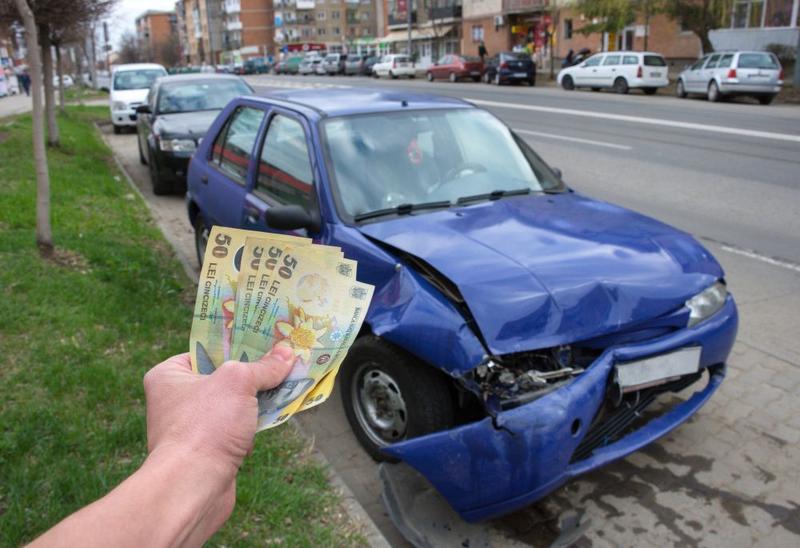Great Britain is rated to be the 8th most prosperous country in the world by Jane's Country Risk, a company that has reached to this conclusion after one year of solid analysis. But the global financial crisis hasn't spared the Brits either. From bank share holders and their consultants, to David Cameroon announcing his willingness to cooperate with Gordon Brown until the panic from the British banking system is brushed off: the Queen's men financial white nights are just starting and they're bound to surprises. John Lang – Principal of Tower Hill Associates Limited from London, and Ed Bowsher – financial expert of money website www.Fool.co.uk, have explained for HotNews readers the current crisis in the British banking system. Sean O'Grady, Economics Editor for The Independentcompletes the two.
1. Is the fear of bank crushes chasing away clients/investors?
John Lang: Clients simply looking for investment advice are staying away preferring to hold money in cash rather than invest in the stock market although they are increasingly requiring advice on where to hold their cash safely! However clients that are seeking a more holistic ongoing financial planning service, particularly those closer to retirement, are actively seeking out advisers that can help them through these difficult times and show them how they can still achieve their retirement goals. If you cannot trust your Bank then who can you Trust, and the answer for many clients is the new emerging financial planning profession i.e. Chartered or Certified Financial Planner.
Ed Bowsher: Because of the fear of bank crushes, banks aren't simply lending money to each other, which is a fundamental problem. Bank A is scared that Bank B is about to go bust, so Bank A stops lending Bank B. That's the biggest impact of the financial crushes at the moment. Also, the fear of bank crushes did trigger another problem at Bradford & Bingley, because people were redrawing money from them because they thought it would get worse and it would collapse, so that created an issue as well.
2. How are the US and China financial crisis affecting the UK's market?
John Lang: I don't see this as a US or Chinese financial crisis affecting the UK's market anymore but a global one with the UK as a component of the global financial market place being adversely affected along with everyone else. There is no place to hide and the idea that developing/emerging markets would decouple from developed markets has been proved wide of the mark.
Ed Bowsher: It's an issue of confidence, really. Whenever US would see share prices fall, you would almost always see UK's prices fall. It's just part of the globalised economy. US banks aren't also lending to each other, therefore UK banks cannot borrow now from US. Whatever happens in the US affects us here.
3. Which are the most affected banks in the UK? What are they doing in order to avoid bankruptcy: partnerships, nationalisation, more attractive deals and saving rates for the customers...?
John Lang: I think the most affected banks in the UK are ones that were heavily reliant on the wholesale money markets and lent money irresponsibly i.e. over 100% loan to value and to self certification/sub prime borrowers. I think the two worst offenders have now been exposed i.e. Northern Rock and Bradford Bingley. However we can expect further Government intervention and banking consolidation which will mean a less competitive market place for mortgages and savings going forward.
Ed Bowsher: The bigger banks are looking past, but they can't see the shore. The ones that look most vulnerable now are The Royal Bank of Scotland, Lloyds TSB and NatWest, but I think it's highly unlikely that they would have problems because they are bigger, so they should be fine. The British banks are now trying to get the money in from the ordinary savers, because they can't get the money from the money markets. A lot of saving accounts are paying very high rates of interest, so the banks borrow money from you and me, because they can't borrow the money from each other. Also, over the last year or so, they've been selling some subsidiaries; they've also used their stock markets and issue more shares to raise money. They're not paying dividends to their share holders either. There are quite a few things that they've done to avoid becoming bankrupt, but B & B got caught up in the end.
4. What do you think are the mistakes that (part of the) UK banks committed that got them in a critical position during the present financial havoc?
John Lang: We are all to blame for this crisis including consumers who lived for today with cheap borrowing rather than saving for tomorrow. However we should have expected a lot more from our regulator the FSA and the Government. We are back to boom and bust and you wonder why two very respectable traditional building societies in their day were allowed to turn themselves into reckless banks with a flawed business model by the FSA.
Ed Bowsher: Bradford & Bingley's biggest mistake was that they lent a lot of their money to people who were investing in property and borrowed too much to invest in property, and once the property market started to fall,B&B came to be one of the most vulnerable of the British banks.
5. Do you advise your clients to keep all their money with the same bank, or to nest them with several banks protected by different financial service compensation schemes?
John Lang: Yes, I am currently recommending that clients hold all their cash with Northern Rock which, whilst nationalised, clients money is 100% protected. Alternatively you can split cash into Ł35,000 lumps in each institution.
Ed Bowsher: People with small investments should be fine, because if you have op to Ł35,000 in a bank and the bank goes bust, the government guaranty to compensate for the sum. Having said that, I think that the government is so terrified that every bank would go bust, that they would help with the compensation beforehand, and that's what happened with B & B and Northern Rock.
6. Are the institutions bailed by the government becoming less attractive to the investors? Are shareholders likely to stay with the banks if these are being nationalised?
John Lang: As a safe haven for cash Northern Rock is more attractive now that the government has nationalised them. Shareholders should be avoiding potentially nationalised banks like the plague as they are likely to lose the majority if not all of their investment.
Ed Bowsher: If a bank is nationalised, the investments do not belong to the investors anymore. Then the investments become worthless, and they're going to be a lot poorer. B&B share holders ended up to nothing. As for other banks, like Lloyds TSB the value of the shares has fallen dramatically. Savers, on the other hand, are protected.
7. What does the Financial Service Compensation Scheme cover?
John Lang: For monies held in bank or building societies 100% of the first Ł35,000 is protected per institution.
8. Will the financial crisis deeply affect the important high street retailer in a capital renowned for its consumerist culture?
John Lang: Most high street retailers will be adversely affected as their customers who now feel/are poorer tighten their belts. Most consumers are undercapitalized as well as the banks i.e. they need to build up their cash resources and no longer have access to cheap debt. Saving will now not be seen as a rude word!
Ed Bowsher: Many retailers on Oxford Street saw their stores fall and fail and it's going to get worse when people will leave the shops.
9. Who benefits from the financial crisis?
John Lang: Looking backwards certain City workers that have been paid excessive bonuses for their “ingenuity” for creating and marketing toxic assets but do not have their bonuses clawed back. The lower end discount stores and pawn brokers will do well. So too will truly independent professional financial advisers where saving will be back in fashion and where clients value knowing what they need to be doing to have the best chance of achieving their financial objectives.
Ed Bowsher: As mentioned, savers are doing well because banks are trying to get money in from ordinary people, so saving rates are very high at the moment.
10. In what way have the losses affected your clients business?
John Lang: My clients are feeling a little poorer because their investments have gone down but the vast majority understand the long term nature of investing and the value of a client led investment approach.
Ed Bowsher: The investors in bank shares have seen the value of their bank shares fall. Basically, share prices are today lower than 10 years before, which is pretty amazing.
11. How do you think the current UK financial crisis will influence the economy of the new EU members such as Romania, whose economy still requires to register an increase?
Ed Bowsher: I'm not an expert in this area, but I can't say it's positive. The economy is clearly on crisis, and it will affect all countries. I'm sure it will affect Romania as well, but why or how badly I don't really know.
John Lang: I think developing economies such as Romania will fair better than developed debt ridden economies because of lower level debt levels. They have more to gain and less to lose although a world recession will affect everyone.
Note: Tower Hill Associates Limited provides an Ongoing Holistic Wealth Management Service to clients with investable assets including pension funds in the range Ł250k to Ł2m. Tower Hill Associates Limited is one of less that 250 firms in the UK designated as Chartered Financial Planners. See http://www.towerhillassociates.com/_aboutus/aboutus.html for more information.
Fool.co.uk is an independent, award-winning company, providing financial intelligence and advice, with an active discussion board, reports and newsletter. For more on protection schemes and related issues, see http://www.fool.co.uk/news/your-money/savings/2008/09/29/the-facts-about-the-savings-guarantee.aspx
The British press on the financial crisis
Sean O'Grady, Economics Editor, The Independent in London:
Looking at the British financial system, there is clear evidence of institutions and other banks simply not lending to each other, and some customers moving money to banks that enjoy government guarantees.
The crisis in the US affects the UK's market greatly, because our financial systems are so intertwined, and because our banks bought a great deal of debt form the US property market We've had a few banks basically go bust - three or so and others being rescued. Almost all are in crisis.
The retailers are already seeing sales fall badly; but the housing and construction sectors are worst hit.
The government allowed levels of debt and leverage to go far too high. This is an important mistake behind the present economic havoc. Institutions backed by the UK government are MORE attractive - the UK has never in history defaulted on its debts. So it's regarded as safe.
There are people who do benefit from the financial crisis: the savers. Right now in the UK, it is best to spread your money around, no more than Ł50,000 in one place.
Regarding the way the crisis will affect the EU emerging countries, I believe the EU will probably be even more wary of allowing new members in while it fixes its won economy, and the euro zone suffers the stresses of the current crisis.




















